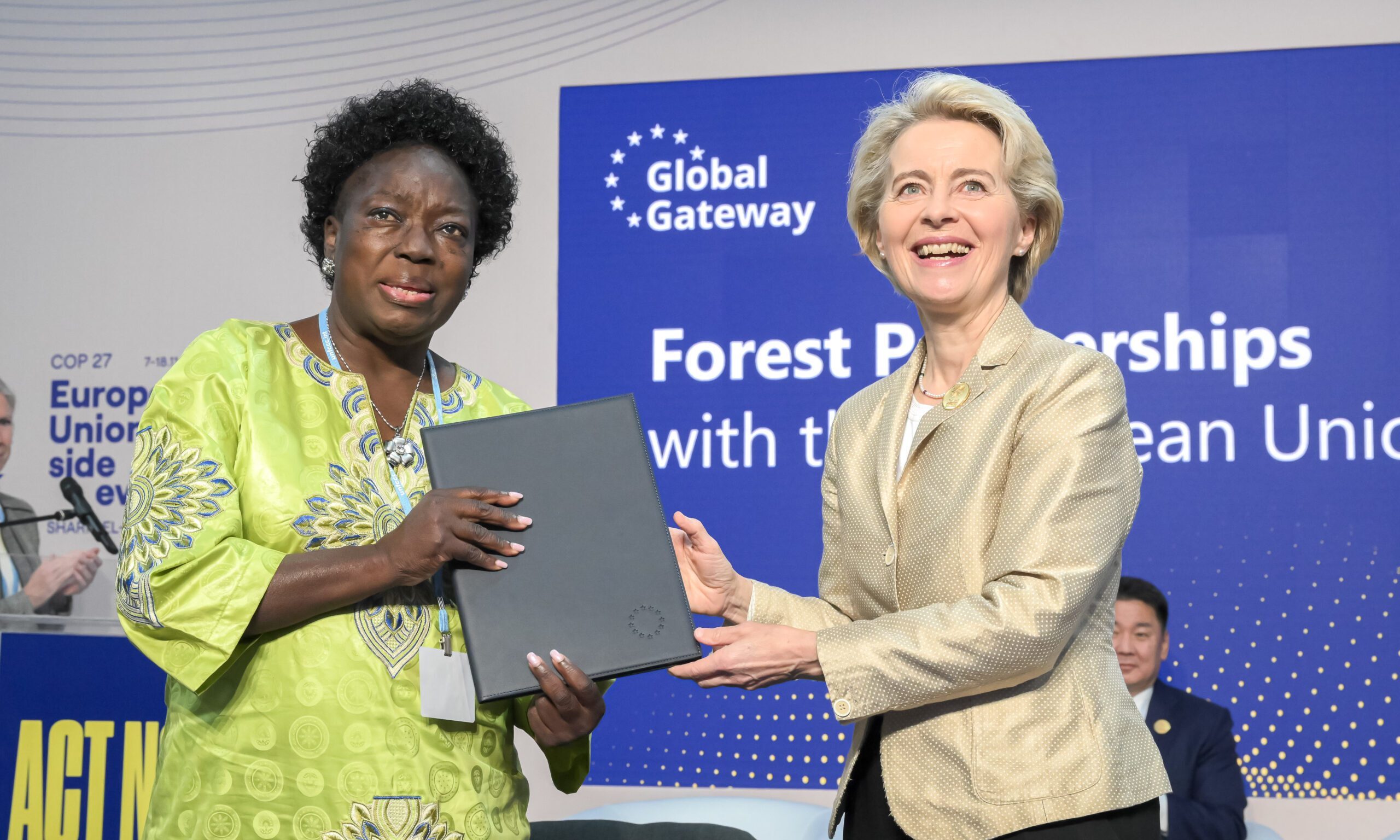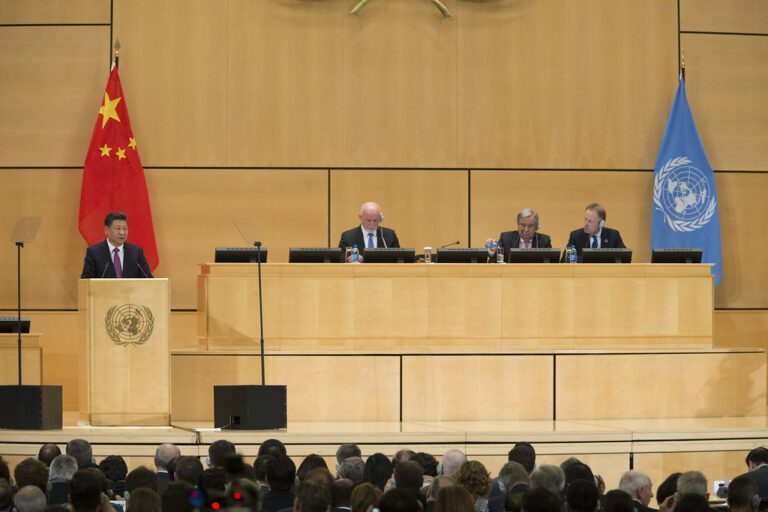
Africa is often viewed by global powers – both traditional and emerging – through the lens of their geopolitical rivalry. As tensions between the European Union and China intensify, Africa’s significance is increasingly framed in terms of how it serves the objectives and interests of these two powers. Yet, unlike in the past, when such rivalries led to proxy wars, the ongoing rivalry in Africa takes the form of competing development models and initiatives such as China’s Belt and Road Initiative (BRI) and the EU’s Global Gateway – Africa-Europe Investment Package, which aims to mobilize approximately €150 billion in investments.
Both the BRI, launched by China in 2013, and the Global Gateway, announced by the EU in 2022, seek to advance infrastructure development, green energy, and connectivity across the African continent. However, their essence and underlying principles differ. The BRI imposes no political or economic conditions on African countries aside from strict adherence to the One China policy. The initiative is also broad enough that anything and everything can effectively constitute a BRI project. The Global Gateway, on the other hand, emphasizes respect for human rights, democracy, and good governance as prerequisites for the African countries’ participation and benefitting from the initiative. Given the democratic backsliding observed in parts of Africa and the EU’s insufficient means and waning ability to enforce these conditions, African leaders are less likely to change their regimes solely to benefit from the Global Gateway.
Response to the Competing Initiatives
Although Africa is a diverse continent, there is a general mistrust of EU initiatives compared to those of China. For instance, Ugandan President Yoweri Museveni has criticized the World Bank and the West for lecturing Africa on democracy and human rights rather than supporting the construction of critical infrastructure such as railways. This has fostered the perception that the EU, bogged down by bureaucracy and its obsession with civil and political rights, lacks an understanding of Africa’s urgent need for infrastructure. In contrast, the BRI’s alignment with the African Union’s Agenda 2063, seems to indicate a better understanding of African needs, solidifying China’s position as the largest external financier of Africa’s infrastructure development.
Harsh criticism of the EU by leaders like Museveni is at times meant to shame the EU into action, which is not a new tactic. During the Cold War, leaders in countries like Angola and the Democratic Republic of the Congo (then Zaire) mastered the art of playing global powers against each other, which included the practice of strategically aligning themselves with one power as a means of maximizing the benefits derived from it. In the post-Cold War era, some African countries implemented just enough reforms under the Structural Adjustment Programs to secure funding from the EU, International Monetary Fund, and the World Bank, only to reverse these reforms once the funds were received. Similar strategies may emerge as the EU rolls out the Global Gateway across the African continent.
Meanwhile, Chinese funded infrastructure projects are ubiquitous in Africa. Except for a few countries such as Eswatini (formerly Swaziland), which maintains diplomatic ties with Taiwan instead of the People’s Republic of China, highways, railways, dams, ports, and airports have been constructed by Chinese firms through loans and grants from China. This makes the BRI projects more visible to ordinary Africans. The EU’s Global Gateway is yet to gain such visibility and is often perceived as the proverbial “all froth, no beer.” As a result, the Global Gateway has not yet generated the same level of interest or impact as the BRI.
The rise of the far-right in Europe has further weakened the EU’s normative power, and thus its ability to insist on democracy and human rights as prerequisites for African partners to benefit from its initiatives. Moreover, anti-European sentiments among leaders in Niger, Mali and Burkina Faso, which have led to France’s diminished influence in these countries, further fuel perceptions that the Global Gateway is merely a ploy by the EU to recapture Africa. Meanwhile, China does not have the same colonial baggage, although concerns about the sustainability of its loans and viability of its investments persist. For instance, Kenya and Ethiopia have had to renegotiate the repayment terms for Chinese loans used to fund their railways projects.
Opportunities for the EU
Through the Global Gateway, the EU is attempting to catch up with the BRI in Africa. Some African actors view this as a desperate effort by the EU to regain lost influence, curb illegal migration, and secure access to the continent’s critical minerals, making the initiative appear self-serving. Indeed, in most respects, the BRI has enjoyed a head start, goodwill from ruling elites and a reputation for consistently delivering on China’s promises without imposing onerous political conditions. However, among ordinary Africans, Chinese funded projects are often viewed as disproportionately benefitting Chinese firms, which often win the construction tenders and secure concessions not extended to local businesses. The EU could learn from these shortcomings by prioritizing local participation in its Global Gateway projects.
In promoting the Global Gateway, the EU taunts it as being transparent, sustainable, and supportive of local firms and communities. This emphasis could resonate with African countries, especially given concerns about the opacity of Chinese financing mechanisms. This was seen in Zambia, where the government of the former President Edgar Lungu understated the country’s loans from China. In other cases, the sustainability and utility of the BRI projects have been questioned, with some airports and ports operating below capacity, leaving host countries saddled with debt. If the EU can address such issues while equipping African countries with the technical and financial capabilities needed to develop infrastructure suitable for their conditions, the Global Gateway could yet gain traction.
The Importance of African Agency
Yet in all this, there is broad consensus across the African continent that Africa should not allow itself to be dragged into the geopolitical rivalry between the EU and China. Instead, the focus should remain on meeting the immense demand for infrastructure and connectivity, which is essential for realizing the African Continental Free Trade Area – a flagship regional project aimed at facilitating the free movement of goods, services, and people across the continent to strengthen Africa’s position in the global market. As such, continental bodies such as the African Development Bank and the African Union are engaging with both the BRI and the Global Gateway. If this approach filters down to the level of individual African countries, the Global Gateway may yet have a chance on the African continent.
Written by
Obert Hodzi
oberthomObert Hodzi is an Associate Professor at the University of Liverpool, specializing in the politics of human rights, development, and the role of non-Western powers in global governance. He is the author of The End of China’s Non-intervention Policy in Africa (Palgrave Macmillan) and has advised on governance and transitional justice in Zimbabwe and Kenya.


